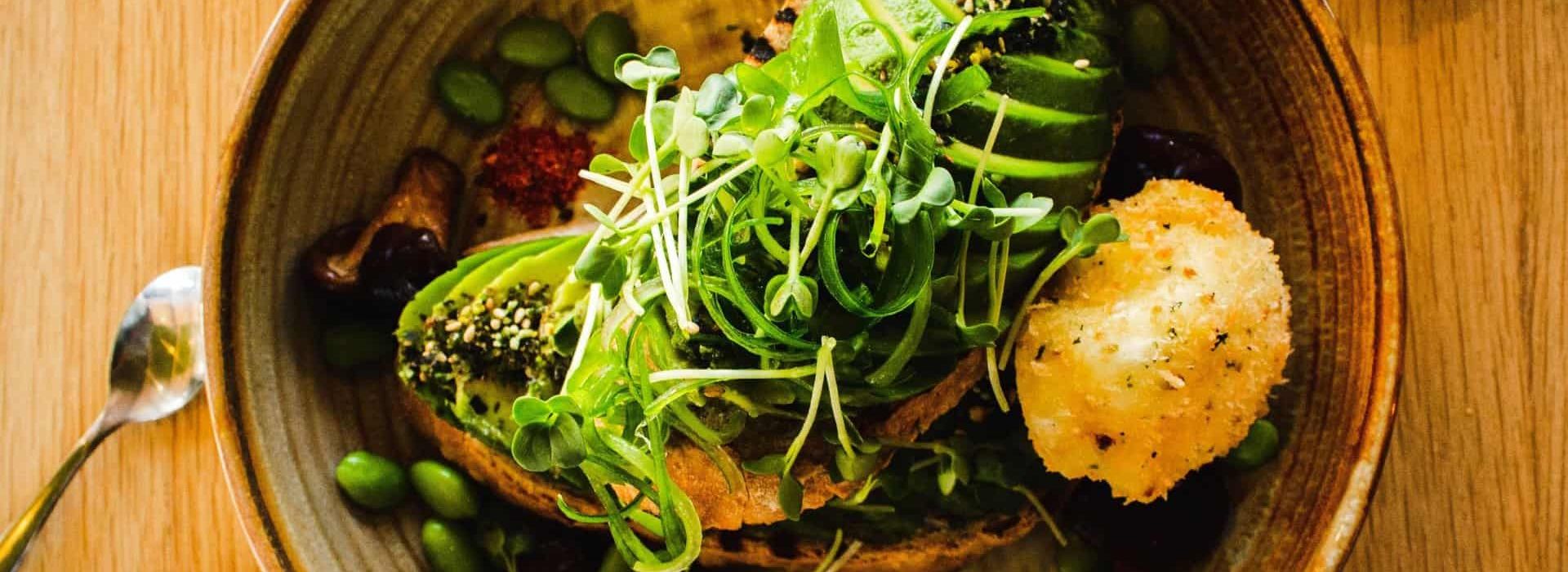Addiction Nutrition 101: The Best Foods to Support Your Recovery

To achieve holistic, long-term recovery, it is crucial to pay attention to the type of nutrition that supports–or hinders–your path out of addiction. We often refer to this as addiction nutrition.
Why Addiction Nutrition is Important
It is no surprise that years of addiction to alcohol or drugs would take a toll on many different aspects of your physical wellbeing. When we are in the throws of drug or alcohol addiction, most of our healthy habits fall to the wayside, including nutrition. Not only do those in addiction ted to miss essential vitamins and minerals of a balanced diet, drugs and alcohol themselves can also deplete the body of essential nutrients, creating all sorts of physiological issues.
Here are a few of the ways in which drug and alcohol addiction may affect nutrition:
- Drugs and alcohol can either suppress or increase appetite, causing those suffering from addiction to either over or under eat, losing connection to the signals their body would otherwise give them that they are hungry or full. Those who under eat are likely to be depleted in essential nutrients.
- The cycle of addiction can put us into survival mode, whereby we may forget to eat, spend our money on drugs and alcohol instead of on food, or else sustain ourselves on unhealthy food. We are unlikely to have the motivation and/or resources to plan our meals and cook for ourselves.
- Addiction puts tremendous stress on our body and nervous system, which can increase digestive problems and deplete our bodies of many of the nutrients it needs to thrive.
How to Use Addiction Nutrition in your Recovery
Creating a well-balanced and sustainable diet is a crucial part of holistic recovery from addiction. A well-balanced diet includes protein, complex carbohydrates, fruits, vegetables, and legumes. Many addiction nutrition experts point to a plant-heavy, “Mediterranean-based” diet as an ideal balance of the foods one needs to thrive. A Mediterranean diet focuses primarily on vegetables, fruit, nuts, seeds, legumes, whole grains, seafood, and lean meats, moderating foods such as dairy, red meat, and refined sugars.
The most important component of a well-balanced diet, whether or not a person is focusing on addiction nutrition specifically, is to limit processed foods and instead opt for meals made with whole foods and simple, fresh ingredients, as well as to cultivate mindful eating practices.
There are some whole foods that are especially helpful in early recovery. Here are a few key nutrients it can aid in rebalancing your body according to addiction nutrition experts:
Antioxidents
Foods that have them: onions, forest berries (blueberries, raspberries, strawberries, blackberries, acai, goji), kale, leeks, artichokes, walnuts and pecans
Why they’re helpful: Antioxidants support the body’s cleansing process during detox and also strengthen the immune system, which is likely to be weakened by addiction.
L-glucamine
Foods that have it: tofu, leafy greens (spinach, chard, kale, parsley, collard greens), cabbage, lentils, beets, beans, carrots, Brussels sprouts, celery, and proteins.
Why it’s helpful: L-glucamine is an amino acid that helps detox and boosts the immune system. It can also help with sugar cravings, which are common in early recovery.
Tyrosine
Foods that have it: whole grains, avocado, dairy, peanuts, almonds, poultry, fish, beef, pork, bananas, soy, sunflower, pumpkin, and sesame seeds.
Why it’s helpful: Tyrosine is a precursor to dopamine, the neurotransmitter that causes us a feeling of wellbeing and is activated by certain illicit substances. While some drugs increase dopamine in the short term, they actually hinder our body’s dopamine balance overall, which is felt acutely during early recovery. Low dopamine can cause us to feel depressed, apathetic, lethargic, and low energy. Tyrosine helps restore dopamine naturally. Tyrosine is also a precursor to norepinephrine, a neurotransmitter that promotes mental clarity.
Tryptophan
Foods that have it: turkey, tuna, cheese, lamb, pork, oats, lentils, beans.
Why it’s helpful: tryptophan is an amino acid that is a precursor to the neurotransmitter serotonin. Serotonin helps us feel both happy and calm. Tryptophan also has calming properties of its own, which can help with anxiety, panic, irritability, and insomnia associated with early recovery.
GABA
Foods that have it: yogurt and kefir, seaweed, tomatoes, shrimp, beans, fish, lentils, and berries.
Why it’s helpful: GABA is another neurotransmitter that promotes calm and relaxation. GABA is especially helpful to those who may be suffering from insomnia or anxiety, both of which are common in early addiction recovery.
Probiotics
Foods that have them: yogurt, kefir, pickles, sauerkraut, kimchi, kombucha
Why they’re helpful: Probiotics are the “good bacteria” that live in the gut and help aid in digestion. Addiction to many drugs such as opiates and alcohol disrupt the digestive system with symptoms such as constipation, diarrhea, vomiting, and IBS. Probiotics help restore balance again in your gastrointestinal tract.

